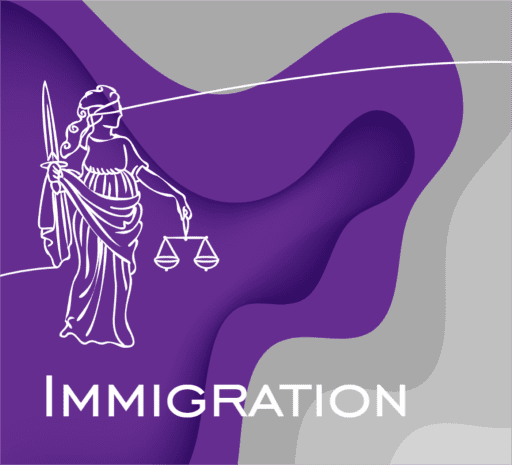An EEA Registration Certificate is a formal document confirming the right of an EEA national to legally reside in the United Kingdom under the terms of the EEA treaty. This means that the individual in question must be officially classified as working, self-sufficient; self-employed, a jobseeker or a student with full health insurance. While it is not a legal requirement for an EEA national to obtain an EEA Registration Certificate, it is a useful document confirming their entitlement to live and work in the United Kingdom.
Should there be any instance where the individual in question is required to provide evidence of their legal status in the UK, an EEA Registration Certificate can save a great deal of time and effort. Applications for EEA Registration Certificates are submitted directly to the Home Office using the application form EEA (QP), which replaced the prior form EEA1.
Family members and extended family members of EEA nationals legally residing in the United Kingdom may also wish to consider applying for a Registration Certificate. Though optional, it can be a useful document to have. For example, should the individual in question need to gain access to public services or claim benefits, a formal Registration Certificate makes it easier for them to confirm their eligibility.
The Immigration (EEA) Regulations 2006 applies and interprets the UK’s obligations under the Free Movement of Persons Directive 2004/38/EC into domestic law. These regulations extent the right most commonly referred to as ‘free movement’ to EEA and Swiss nationals and qualifying individuals. Although Switzerland is not a member of the EEA, an agreement reached in 2002 extended the right of free movement within the EU to Swiss nationals and their family members.
A Qualified Person
Once again, it is not a formal requirement for a ‘qualified person’ to obtain a Registration Certificate. In order to be considered a qualified person, the individual must be officially classified as working, self-sufficient; self-employed, a jobseeker or a student with full health insurance. Workers and self-employed individuals who are rendered temporarily unemployed due to accident, injury or commencement of vocational training may also retain their status as qualified individuals.
Rights of Admission and Residence as an EEA National
Under regulation 11, any EEA national with a valid and accepted form of identification is legally entitled to enter the United Kingdom with no specific fees or requirements. In accordance with regulation 13 of the 2006 Immigration (EEA) Regulation, they officially have the right to remain in the United Kingdom for a maximum of three months. Should they wish to extend their stay beyond this limited three-month period, they must be able to provide evidence of their status as a qualified person.
Countries in the European Economic Area (EEA)
The European Economic Area currently comprises 28 countries, which came together to form a single market and enable the free movement of people, goods, services and capital. This single market also includes three European Free Trade Association states – Iceland, Liechtenstein and Norway, which are formally outside the EU yet part of the same integrated market.
Although Switzerland is not officially a member of the EEA, the country abides by any agreement reached with the EU to capitalise on the trade and free movement benefits of the union. Please refer to the European Commission website and the Swiss Federal Administration website for more information on Switzerland’s relationship with the EU/EEA.
At the time of writing, the full list of countries within the European Economic Area are as follows:
- Austria
- Belgium
- Bulgaria
- Cyprus
- Czech Republic
- Denmark
- Estonia
- Finland
- France
- Germany
- Greece
- Hungary
- Iceland
- Irish Republic
- Italy
- Latvia
- Liechtenstein
- Lithuania
- Luxembourg
- Malta
- Netherlands
- Norway
- Poland
- Portugal
- Romania
- Slovakia
- Slovenia
- Spain
- Sweden
- United Kingdom
As a British Territory, Gibraltar is also a member of the European Economic Community and extends the same free trade and movement rights as the rest of the EU. Once again, Switzerland is not a formal member of the EEA, yet its citizens and their family members enjoy the same rights as other EEA nationals.
Exercising Your Treaty Rights
An EEA Registration Certificate provides formal documentation and verification of the respective individual’s status as a qualified person, in accordance with their treaty rights. The individual may exercise their treaty rights in any of the five primary categories:
- Student
- Worker
- Self Employed
- Self-Sufficient
- Jobseeker
Exercising Treaty Rights as a Student
An EEA national residing in the UK and studying at a recognised educational training institution is classified as a qualified person as a student. In order to qualify, the individual must be enrolled on an active course with a provider that complies with the Immigration (EEA) Regulations 2006.
In addition, the EEA national is required to provide evidence of their income and financial status, in order to prove their capacity to cover their expenses for the duration of their residency. This may be provided in the form of student loan documentation, bank statements, scholarship information and so on. Comprehensive health insurance is also a requirement for students seeking a qualified person status.
Please note that EEA nationals studying in the United Kingdom are usually required to cover their living costs with no option to claim benefits. Right of residency may be lost where a qualified person tends to claim public funds – successfully or otherwise.
If you are exercising your treaty rights as a student in the United Kingdom, you can submit an EEA Registration Certificate application.
Exercising Treaty Rights as a Worker
EEA nationals who have secured formal employment (part-time or full-time) in the United Kingdom are considered to be exercising their treaty rights as a worker. They must have sufficient funds to support themselves and their dependants financially, though resorting to benefit claims in some instances will not necessarily result in revocation of residence rights.
There are also instances where a qualified person exercising their treaty rights as a worker will retain the qualified person status, despite facing a period of temporary unemployment. According to regulation 6 (2) of the Immigration (EEA) Regulations 2006, qualified person status is retained if:
- The worker is temporarily unemployed due to an accident or illness
- Their employment is terminated involuntarily and they have begun a vocational training programme
- They have voluntarily quit their job to enrol on a vocational training course of relevance to their previous employment
If you are exercising your treaty rights in the UK as a worker, you will have the option of applying for an EEA Registration Certificate.
Exercising Treaty Rights as a Self-Employed Person
It’s also possible to exercise your treaty rights as an EEA national as a self-employed individual working in the UK. To successfully obtain qualified person status, the self-employed individual must be registered for National Insurance and income tax contributions with HMRC. They must also be able to provide proof of income and their general business activities, typically in the form of cleared invoices, business accounts, tax returns, bank statements, letters from accountants and other formal documents.
According to Regulation 6(3) of the Immigration (EEA) Regulations 2006, a self-employed individual will retain their qualified person status if rendered temporarily unable to work due to accident or illness. There are also circumstances where benefits may be claimed as a self-employed individual, without affecting their right to reside in the UK.
If you exercise your treaty rights as a self-employed person in the UK, you will have the option of applying for an EEA Registration Certificate.
Exercising Treaty Rights as a Self-Sufficient Person
Official EEA immigration legislation defines a self-sufficient person as an individual who has the financial capacity to cover their own living expenses and those of any dependent family members where applicable. In addition, the self-sufficient individual must have comprehensive health insurance coverage for themselves and their family members.
Any self-sufficient person who subsequently attempts to claim public funds (successfully or otherwise) may immediately lose their residency rights. Self-sufficient person status is only granted to those who are truly self-sufficient and require no financial support by way of public funds.
Retired EEA nationals may also qualify for self-sufficient person status, if able to submit evidence of sufficient income and/or savings via pension payments and other viable sources. Again, self-sufficient person status is granted upon the condition that the individual will not claim benefits for any reason at any time.
The rules for charity workers are similar, requiring that the EEA national can provide evidence of sufficient income or financial resources to meet their living expenses and those of any dependent family members. If the charity the individual runs or works for covers their living costs, they may qualify as a self-sufficient person.
In all of the above instances, the qualified individuals may choose to apply for an EEA Registration Certificate, should they wish to do so.
Exercising Treaty Rights as a Jobseeker
Jobseekers may also enjoy the benefits of qualified person status in the UK, under the condition that they are actively looking for a job and have a strong chance of securing employment.
In order to qualify, the EEA national must be formally registered as a jobseeker in the UK and be able to provide evidence of employment for at least one year before becoming unemployed. In addition, they should not have spent more than six consecutive months unemployed. Along with evidence of an active and intensive job search, the individual must be able to provide evidence of their realistic chance of gaining employment.
Those who obtain qualified person status as jobseekers in the UK are strongly advised to consider applying for an EEA Registration Certificate.
EEA Residence Card Lawyers in Luton
While there’s no legal requirement to apply for an EEA Registration Certificate, it can be useful to formalise your legal status in the UK. Aristone Solicitors can provide the expert support you need to streamline and simplify your EEA Registration Certificate application from start to finish. Whether ready to go ahead or unsure of your eligibility for an EEA Registration Certificate, we’d be delighted to hear from you. Contact one of our representatives today to organise your obligation-free consultation.



